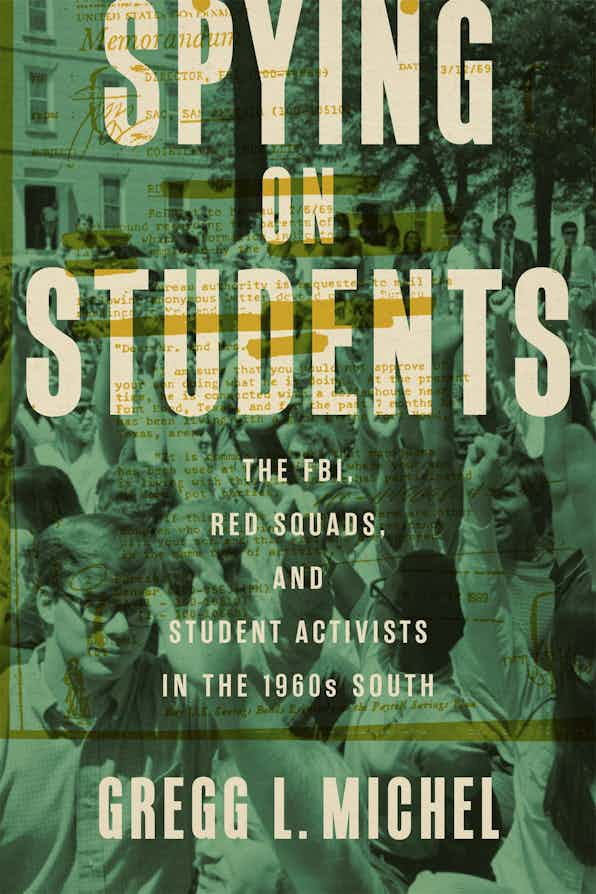Gregg L. Michel’s new book, Spying on Students: The FBI, Red Squads, and Student Activists in the 1960s South, recounts the hidden history of police “Red Squads” in the U.S. South during the 1960s and 1970s that were formed to spy on and disrupt leftist activist groups.
Like their counterparts in other cities, these “Red Squads” committed myriad constitutional violations, including through participation in illegal break-ins, framing activists for arrest by planting drugs on them, and coercing them into committing other illegal acts.
The impact of their operations was often devastating, as the people targeted experienced family ruptures, expulsions from school, and arrests.
A professor of history at the University of Texas at San Antonio, Michel notes that the U.S. South is traditionally left out of histories of the 1960s, though activist groups devoted to civil rights and anti-war organizing proliferated there.
The few histories of police “Red Squads” and FBI surveillance predominantly focus on northern and midwestern cities, as in Frank Donner’s landmark study, Protectors of Privilege: Red Squads and Police Repression in Urban America (Oakland, CA: University of California Press, 1992).
The governing authorities of the South were particularly conservative in their orientation, and prone to view any progressive activism negatively, even if lawfully carried out and reasonable in approach. Southern leaders were quick to label student activists as being communist influenced and anti-American subversives threatening to the social order.
These activists were especially hated because they punctured the carefully cultivated myth embraced by the white upper-class that the New South was a progressive, racially harmonious place where Blacks had been given access to government jobs and economic opportunities.
Michel points out that the expansion of “Red Squads” in southern cities was enabled by the Johnson administration’s creation of the Law Enforcement Assistance Administration (LEAA) under the 1968 Omnibus Crime Control and Safe Streets Act, which offered federal grants to local and state law enforcement agencies they could use to bolster their intelligence and surveillance capabilities, including by purchasing new surveillance technologies.
U.S. Army Intelligence and the CIA became more active in advising local police forces as they upgraded their intelligence gathering and introduced tools and tactics that had been adopted in the Vietnam War.
The FBI also collaborated closely with southern police “Red Squads” and sent agents to compile dossiers on students who attended Stop the Draft Week events, picketed defense contractors like Lockheed Aircraft Corporation’s plant in Cobb County, Georgia, and protested the appearance of war-mongering politicians like Lyndon Johnson and Hubert Humphrey on their campuses.
